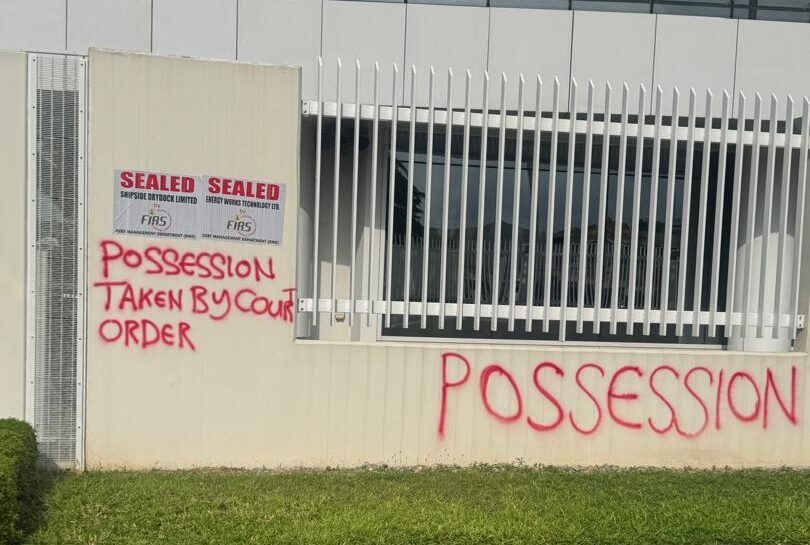MARTA FIGLEROWICZ reflects on the Ife Institute of Advanced Study Summer Programme
On July 26 of this year, I found myself praying in a field on the outskirts of Ife. The field was planted with corn and cola, both of which were fast ripening. Several of us picked kola nuts and ears of corn while walking into the grounds. We held on to them after the prayers were over.
To an outsider, we may have seemed like early harvesters. But we were there for a different reason, to sow seeds rather than pick fruits. Surrounding me were fellows and facilitators of the Ife Institute of Advanced Study Summer Program, now in its ninth year of meeting on the campus of Obafemi Awolowo University. The Institute had recently purchased a plot not far from the Obafemi Awolowo University (OAU), which we had driven to visit. Led, in turn, by an imam, a pastor, and a babalawo, we expressed hope that the Institute may create a suite of its own buildings on this spot in not too long.
Why was I there? A serendipity: earlier this year, I ran into the Institute’s convener, Professor Jacob Olupona of Harvard University, at a symposium, where he described the summer program to me. Each year, the program sponsors a cohort of young scholars from around Africa to participate in its summer session either in person or online. Successful applicants are promising recent MAs and PhDs from across disciplines who are considering an academic career.
Over the course of two weeks, these fellows undergo an intense, rigorous crash-course in academic collaboration, research, and career-building. The skills and insights they acquire are often referred to, in Western academia, as ‘the hidden curriculum.’ How does one write a successful grant proposal? Is collaboration across different disciplines professionally worthwhile? How do early-career academics navigate work-life balance?
Most aspiring scholars don’t have a large, reliable community within which to seek answers to such questions. Even as the facilitators provide immediate responses, they also create lasting bonds of mentorship that foster such a cross-generational community for the long term. The program’s ultimate goal is to help the fellows transform from emergent local experts into researchers who can describe their work to people across the globe, connecting it to broader modes of inquiry on other continents and in other disciplines.
I promptly accepted Professor Olupona’s invitation to join this initiative. On the ground in Ife, I realized that most of the other facilitators had found their way to the Institute like I had. Over the years, it has spread through word-of-mouth networks, bringing together academics from Europe, North America, and Africa who gather for two weeks, whether physically or virtually, to lead workshops and deliver lectures. It speaks to the appeal of the program, and its felt necessity, that all of us had agreed to participate in it without remuneration.
As a scholar who had moved to the United States from the former Second World, I know the difficulties and frustrations of seeking to bridge geographic and cultural distances. All too often, scholars from outside the West face prejudice that impedes their efforts to broaden their academic networks. Programs like the summer institute cannot prevent such acts of prejudice outright. But they do give younger scholars more control and ownership over how they translate their professional selves and ideas into other contexts.
I will confess I also had selfish reasons for being at Ife: I wanted to see the cutting edge of intellectual innovation. The young people I met there teem with newness. They are hungry for a full, fine-grained understanding of the world they live in. False boundaries between what counts as knowledge or mere custom, or between one discipline and another, make them impatient. So do assumptions about where in the world new knowledge should be expected to come from.
These young people refuse to allow their insights and perspectives to remain overlooked and distorted by prejudice. That is why they came to Ife this summer, to build taller platforms from which to announce their discoveries and arguments. The stories told by fellows from previous years confirmed this hope, time and again. Equipped with new professional tools, many of them had found success applying for prestigious grants, for research money, for fellowships abroad.
These grants and fellowships are coveted means, but ultimately, they are means to an end. The term professor, at its core, refers to someone who professes: affirms their faith in or allegiance to something larger than themselves. The fellows and facilitators who stood around me on the Institute’s future campus all could have easily chosen to follow more financially advantageous, arguably less frustrating careers. What brought them here was the conviction that a well-examined life, and a well-examined world, were good in and of themselves. So here they were, fighting an uphill battle to make their communities a little better-known and more self-knowing, and thereby safer, stronger, uplifted. As I prayed with them, I felt they were restoring my own faith.
Figlerowicz is a Professor of Comparative Literature at Yale University. She also writes for The Washington Post, The Paris Review, Foreign Affairs and others
The post ADVENTURE IN SCHOLARSHIP AT ILE-IFE appeared first on THISDAYLIVE.



